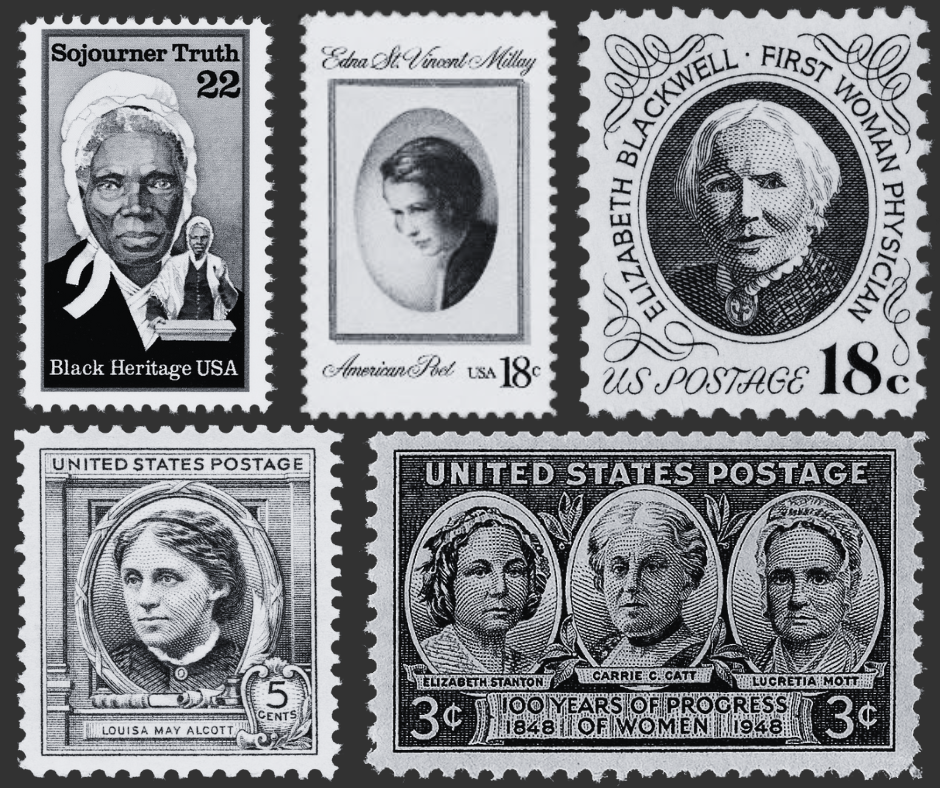

25 Incredible Women Who Were Honored With Their Own Postage Stamps
Summary
Reflection Questions
Journal Prompt
Throughout American history, countless women have left indelible marks on society, culture, and the progress of humanity. From groundbreaking scientists and pioneering activists to influential artists and fearless leaders, their contributions have been as diverse as they are significant. Recognizing these remarkable achievements, the United States Postal Service has immortalized a select few of these trailblazers by featuring them on postage stamps, offering a unique form of tribute. In this article, we celebrate twenty-five incredible women who have been so honored, each a testament to the strength, intelligence, and creativity inherent in womankind. Their stories, encapsulated on the smallest of canvases, inspire generations and remind us of the power of individual impact in shaping a better world. From Celia Cruz to Maya Lin, read on to learn about twenty-five women who more than deserve their own commemorative stamps.
25 Incredible Women Who Were Honored With Their Own Postage Stamps
Commemorative stamps issued by the US Postal Service depict a number of subjects, with more than one stamp commemorating important events throughout our history. Early government leaders, explorers, and industry magnates (traditionally men) were commonly featured on stamps, but the United States Postal Service (USPS) has also issued stamps featuring women from various fields, including politics, arts, science, and civil rights, among others. Women have been depicted on U.S. stamps since the 19th century, with the first woman believed to be Queen Isabella of Spain, who was featured alongside Christopher Columbus on stamps issued for the World’s Columbian Exposition in 1893.
The first American woman honored with her own postage stamp was Martha Washington, who, as First Lady, was one of the most recognizable women in America and an important national symbol acting as a representative of the US. She was featured on a U.S. postage stamp issued in 1902 and, aside from other famous First Ladies, was the only woman honored with a postage stamp for quite some time. This stamp was part of a series that celebrated famous Americans, and Martha Washington’s inclusion underscored her historical significance as the wife of George Washington, the first President of the United States, and as an important figure in American history in her own right.
After World War II, the number of commemorative stamps issued to honor women increased significantly. It has since grown to include dozens of influential figures from a range of backgrounds. While we cannot possibly cover them all, we have selected twenty five women who were honored with their own postage stamps throughout U.S. history. For a more complete list of postage stamps honoring women in America, check out the Women on Stamps series from the Smithsonian hereor explore exhibits from the National Postal Museum online.
Celia Cruz
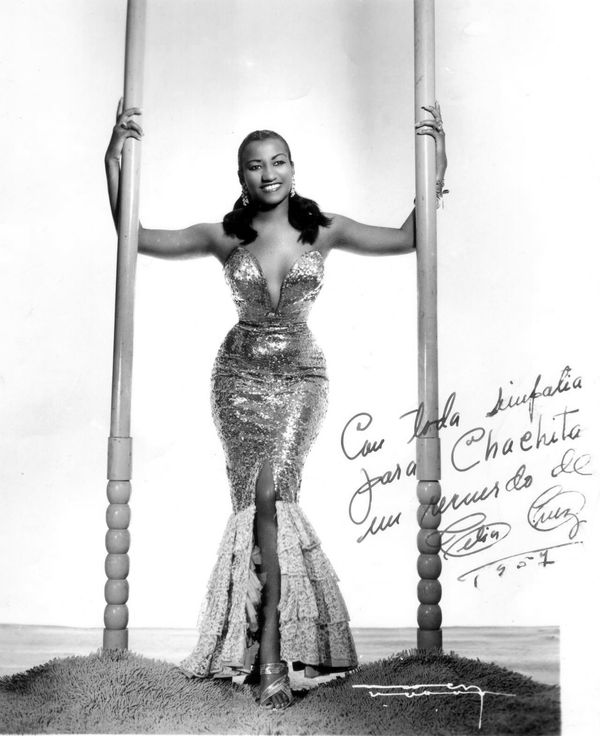

Celia Cruz, a Cuban-American singer and one of the most influential figures in the genre of salsa music, was posthumously honored with her own U.S. postage stamp in 2011. Known as the “Queen of Salsa,” Cruz’s career spanned more than five decades, during which she became famous for her powerful voice, electrifying performances, and distinctive style.
Her stamp, part of the Latin Music Legends series by the United States Postal Service, celebrates her contribution to the music industry and her role in bringing Afro-Cuban music to a global audience. Cruz’s legacy on a postage stamp not only commemorates her artistic achievements but also underscores her impact on Latin culture and music’s international appeal.
Susan B. Anthony
Susan B. Anthony, a pioneering figure in the American suffrage movement, was commemorated with a U.S. postage stamp in 1936, becoming one of the first women to receive this honor. As a relentless advocate for women’s rights, Anthony played a crucial role in the campaign for women’s suffrage, leading to the eventual ratification of the 19th Amendment, which granted women the right to vote.
Her stamp, issued as part of the Famous Americans Series, acknowledges her tireless efforts and significant contributions to the fight for gender equality. Anthony’s legacy, immortalized on a postage stamp, serves as a reminder of the power of advocacy and the importance of equal rights for all.
Harriet Tubman
Harriet Tubman, known for her courageous efforts in leading enslaved people to freedom via the Underground Railroad, was honored with a U.S. postage stamp in 1978. This stamp marked her as the first African American woman to receive such recognition, as part of the Black Heritage Series initiated by the United States Postal Service.
Tubman’s work as an abolitionist, spy, and nurse during the Civil War, coupled with her lifelong dedication to fighting for equality and justice, is celebrated through this commemorative stamp. The issuance of the stamp not only pays tribute to Tubman’s remarkable legacy but also serves as a powerful symbol of her enduring impact on the nation’s history and values.
Eleanor Roosevelt
Eleanor Roosevelt, a transformative First Lady and a champion of civil rights and humanitarian causes, was commemorated with a U.S. postage stamp in 1963. As the wife of President Franklin D. Roosevelt, she redefined the role of the First Lady, using her position to advocate for social change and human rights both nationally and internationally.
Her stamp, part of the Prominent Americans series, acknowledges her extensive contributions to social reform and her role in founding the United Nations’ Universal Declaration of Human Rights. The issuance of her stamp not only honors Roosevelt’s legacy as a tireless advocate for the marginalized but also highlights her significant impact on American society and beyond.
Marian Anderson
Marian Anderson, a celebrated contralto whose voice broke barriers and challenged racial prejudices, was another woman pictured on U.S. postal stamps. She was honored with a U.S. postage stamp in 2005. As an African American singer, Anderson’s historic 1939 concert at the Lincoln Memorial, after being denied a performance at Constitution Hall due to her race, stands as a pivotal moment in the struggle for civil rights in America.
Her stamp, part of the Black Heritage Series, celebrates not only her extraordinary musical talent but also her role as a symbol of dignity and perseverance in the face of discrimination. The recognition through a postage stamp serves as a testament to Anderson’s enduring legacy as an artist who used her platform to advocate for equality and change.
Helen Keller
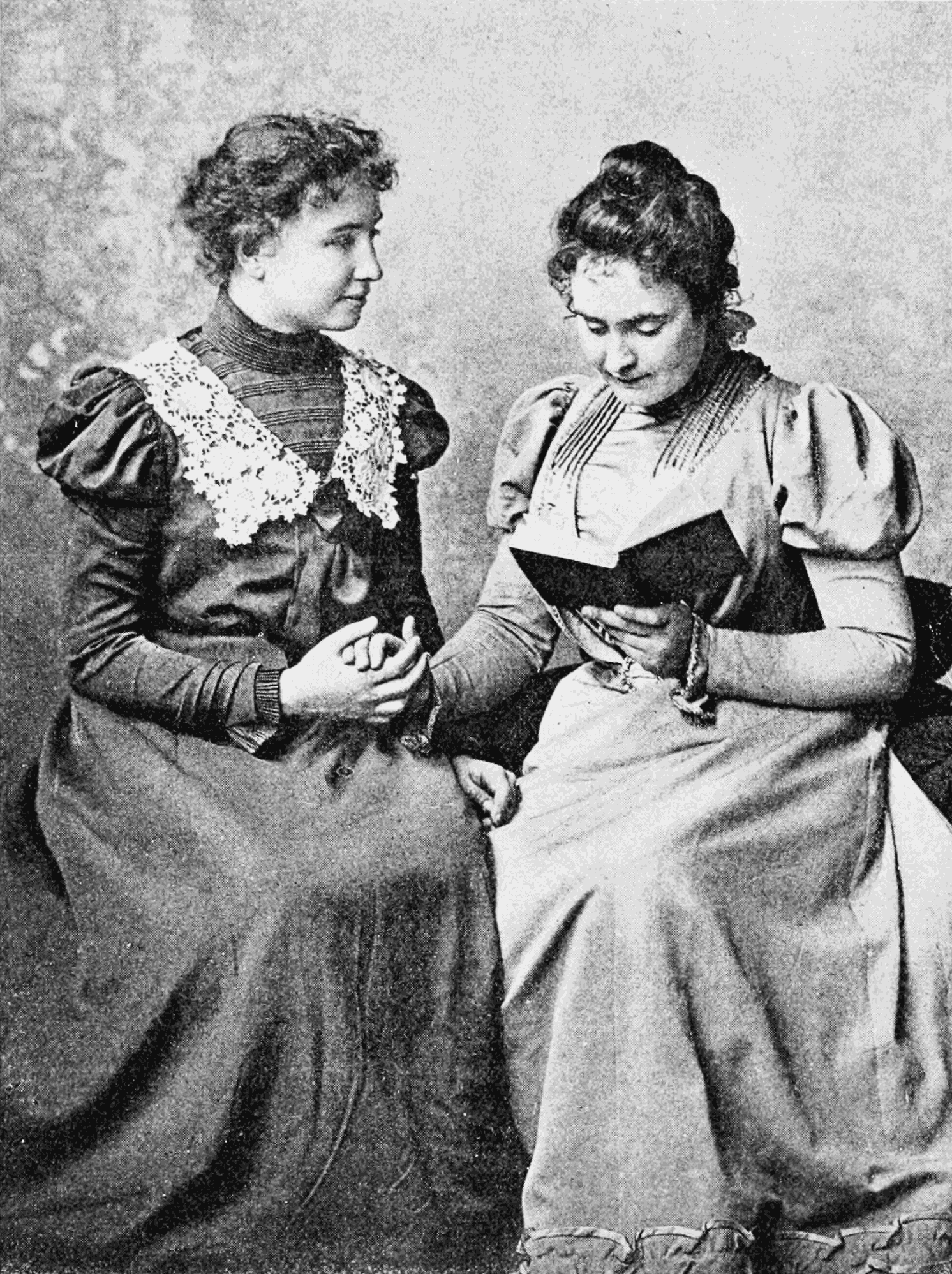

Helen Keller, an advocate for the disabled who overcame her own blindness and deafness to become a prolific author and lecturer, was commemorated with a U.S. postage stamp in 1980. Her stamp, part of the Famous Americans series, honors her remarkable life of advocacy, emphasizing education and opportunities for people with disabilities, and her work with the American Foundation for the Blind. Keller’s legacy as a beacon of resilience and empowerment is celebrated through this recognition.
Amelia Earhart
Amelia Earhart, the daring aviator who became the first woman to fly solo across the Atlantic Ocean, was honored with a U.S. postage stamp in 1963. Earhart’s stamp recognizes her pioneering spirit and contributions to the field of aviation, as well as her role in promoting opportunities for women in science and engineering. Her mysterious disappearance in 1937 while attempting to circumnavigate the globe remains one of the 20th century’s enduring mysteries.
Martha Washington
As noted above, Martha Washington, America’s inaugural First Lady, was the first of many pioneering women commemorated with a postage stamp. Her stamp reflects her significant role in American history, not only as the spouse of George Washington but also for her contributions to the welfare of Revolutionary War soldiers and her management of Mount Vernon. Martha Washington’s stamp is a tribute to her enduring legacy in the nation’s early social and cultural fabric.
Mary Cassatt
Mary Cassatt, an American painter and printmaker who captured the intimate moments of women and children, was honored with a U.S. postage stamp in 1966. As a leading figure in the Impressionist movement, Cassatt’s stamp celebrates her contributions to the art world and her role in bridging the American and European art scenes. Her work, emphasizing the beauty of everyday life, remains influential.
Clara Barton
Clara Barton, the founder of the American Red Cross and a pioneering nurse, was commemorated with a U.S. postage stamp in 1948. Barton’s stamp honors her invaluable contributions to American healthcare and emergency response, as well as her humanitarian efforts during the Civil War and in numerous national disasters. Her legacy as an organizer and a caregiver is celebrated through this stamp.
Sally Ride
Sally Ride, the first American woman in space, was honored with a U.S. postage stamp in 2018. Ride’s stamp celebrates her historic 1983 space shuttle flight, her contributions to science education, and her role as a trailblazer for women in the fields of science and technology. Her legacy continues to inspire young women to pursue careers in STEM.
Rosa Parks
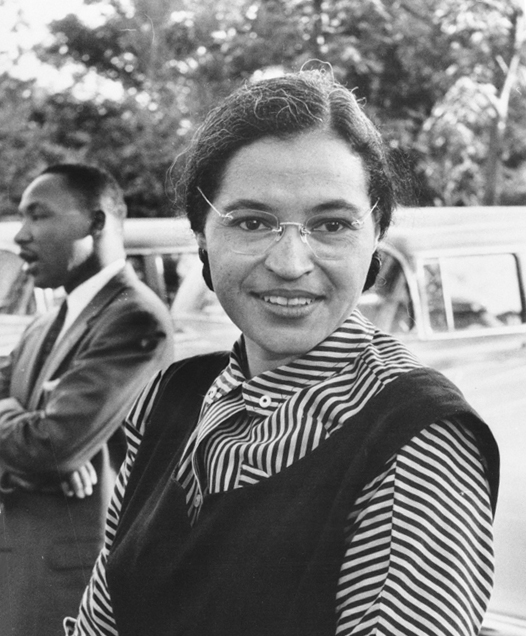

Rosa Parks, whose refusal to surrender her bus seat to a white passenger in 1955 became a symbol of the Civil Rights Movement, was commemorated with a U.S. postage stamp in 2013. Her stamp marks her as an icon of resistance against racial segregation and honors her lifelong commitment to equality and justice. Parks’ quiet strength and dignity sparked a nationwide effort to end racial segregation.
Georgia O’Keeffe
Georgia O’Keeffe, renowned for her unique contributions to American modernism and her distinctive paintings of enlarged flowers, New York skyscrapers, and New Mexico landscapes, was honored with a U.S. postage stamp in 1996. O’Keeffe’s stamp acknowledges her role in shaping the trajectory of American art and her ability to capture the essence of her subjects with bold simplicity and natural forms.
Abigail Adams
Abigail Adams, a first lady known for her prolific letters and for advocating women’s rights and abolition, was commemorated with a U.S. postage stamp in 1985. Her stamp recognizes her influence as an early advocate for women’s inclusion in the fledgling democracy and her advisory role to her husband, President John Adams. Adams’ insights and advocacy are highlighted as foundational to America’s early discourse on gender equality.
Bessie Coleman
Bessie Coleman, the first African American woman to earn an aviation pilot’s license and the first American woman to earn an international aviation license, was honored with a U.S. postage stamp in 1995. Coleman’s stamp celebrates her pioneering achievements in aviation, her defiance of racial and gender barriers, and her legacy as an inspiration to future generations of African American and female aviators.
Frances Perkins
Frances Perkins, the first woman to serve in the U.S. Cabinet as Secretary of Labor under President Franklin D. Roosevelt, was commemorated with a U.S. postage stamp in 1980. Her stamp honors her role in establishing the New Deal’s social welfare policies, including the Social Security Act, and her contributions to improving labor conditions. Perkins’ legacy as a trailblazer for women in government and an advocate for workers’ rights is celebrated through this recognition.
Sojourner Truth
Next on our list of women featured on US postage stamps is Sojourner Truth. Sojourner Truth, born into slavery in New York State around 1797, became an iconic figure in the abolitionist movement and the fight for women’s rights. Her speech, “Ain’t I a Woman?” delivered in 1851, remains a powerful testament to her advocacy for equality. Recognizing her enduring legacy, the United States Postal Service honored Sojourner Truth with a postage stamp in 1986 as part of the Black Heritage series.
Patsy Takemoto Mink
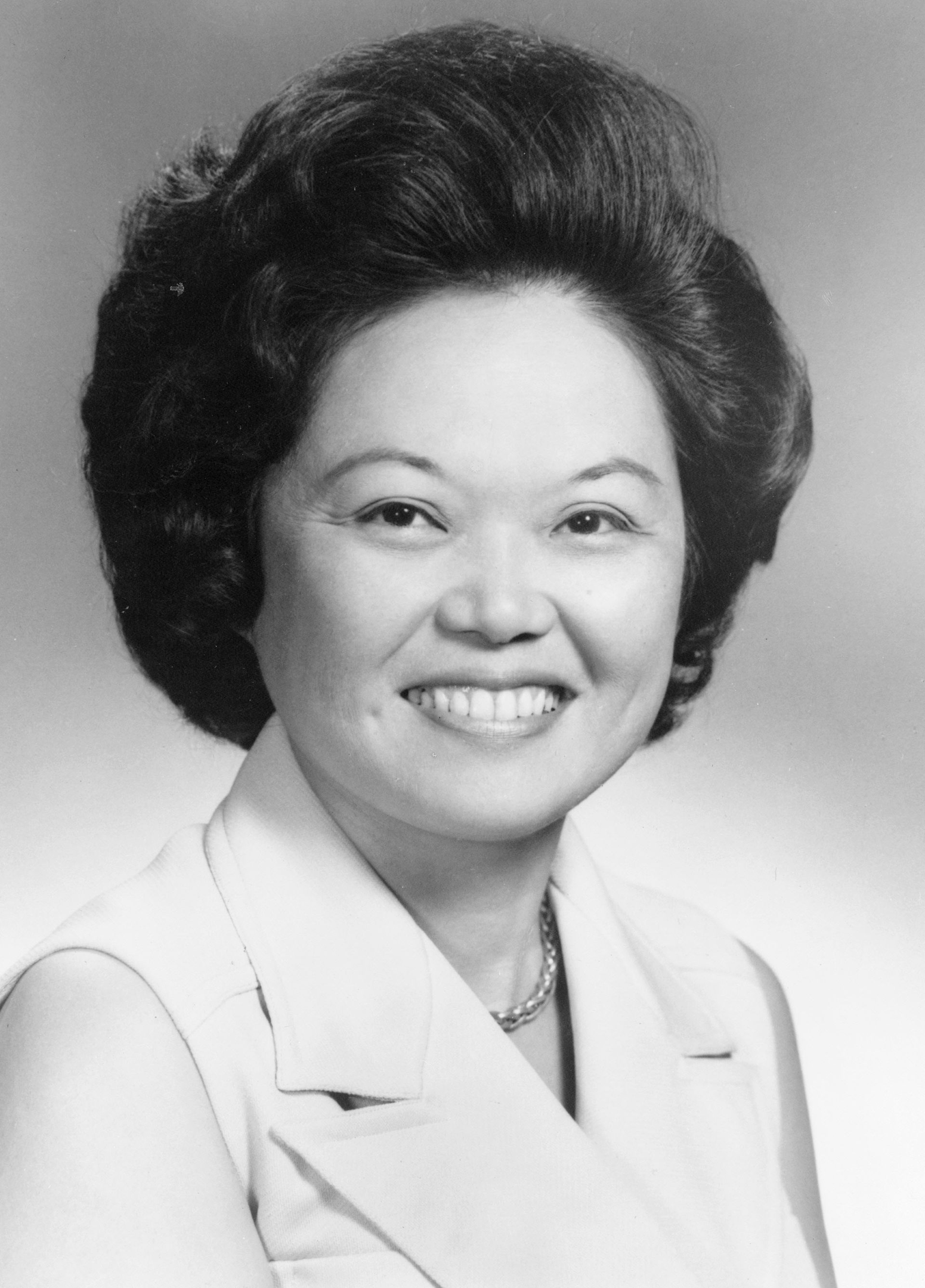

Patsy Takemoto Mink made history as the first woman of color and the first Asian American woman elected to the U.S. Congress. Serving Hawaii from 1965 until her death in 2002, she co-authored the landmark Title IX legislation that prohibits gender discrimination in education. Mink’s trailblazing career was commemorated with a postage stamp issued in 2018, celebrating her contributions to American society and politics. Margaret Chase Smith, another female politician in the US, also received a postage stamp.
Lucille Ball
Lucille Ball, best known for her groundbreaking role in the television series “I Love Lucy,” was celebrated for her pioneering work in entertainment and her role as a trailblazer for women in the industry. In 2001, the United States Postal Service issued a stamp in her honor, recognizing her significant impact on American television and her status as a beloved cultural icon.
Maya Angelou
Maya Angelou, a towering figure in American literature and civil rights activism, was celebrated for her poignant works that explore themes of identity, family, and race. Her autobiography, “I Know Why the Caged Bird Sings,” remains a seminal work in American literature. In 2015, the Postal Service issued a stamp commemorating Angelou, honoring her legacy as a writer and activist.
Elizabeth Blackwell
Elizabeth Blackwell, the first woman to receive a medical degree in the United States, broke barriers in the predominantly male medical profession in the 19th century. Her dedication to women’s medical education led to the establishment of the New York Infirmary for Women and Children. In 1974, the U.S. Postal Service issued a stamp in her honor, recognizing her contributions to medicine and women’s rights.
Louisa May Alcott
Louisa May Alcott, celebrated for her classic novel “Little Women,” captured the complexities of family life and women’s roles in society. Beyond her literary achievements, Alcott was an advocate for women’s suffrage and abolition. The United States Postal Service paid tribute to her legacy with a postage stamp issued in 1940, celebrating her contributions to American literature and social reform.
Virginia Apgar
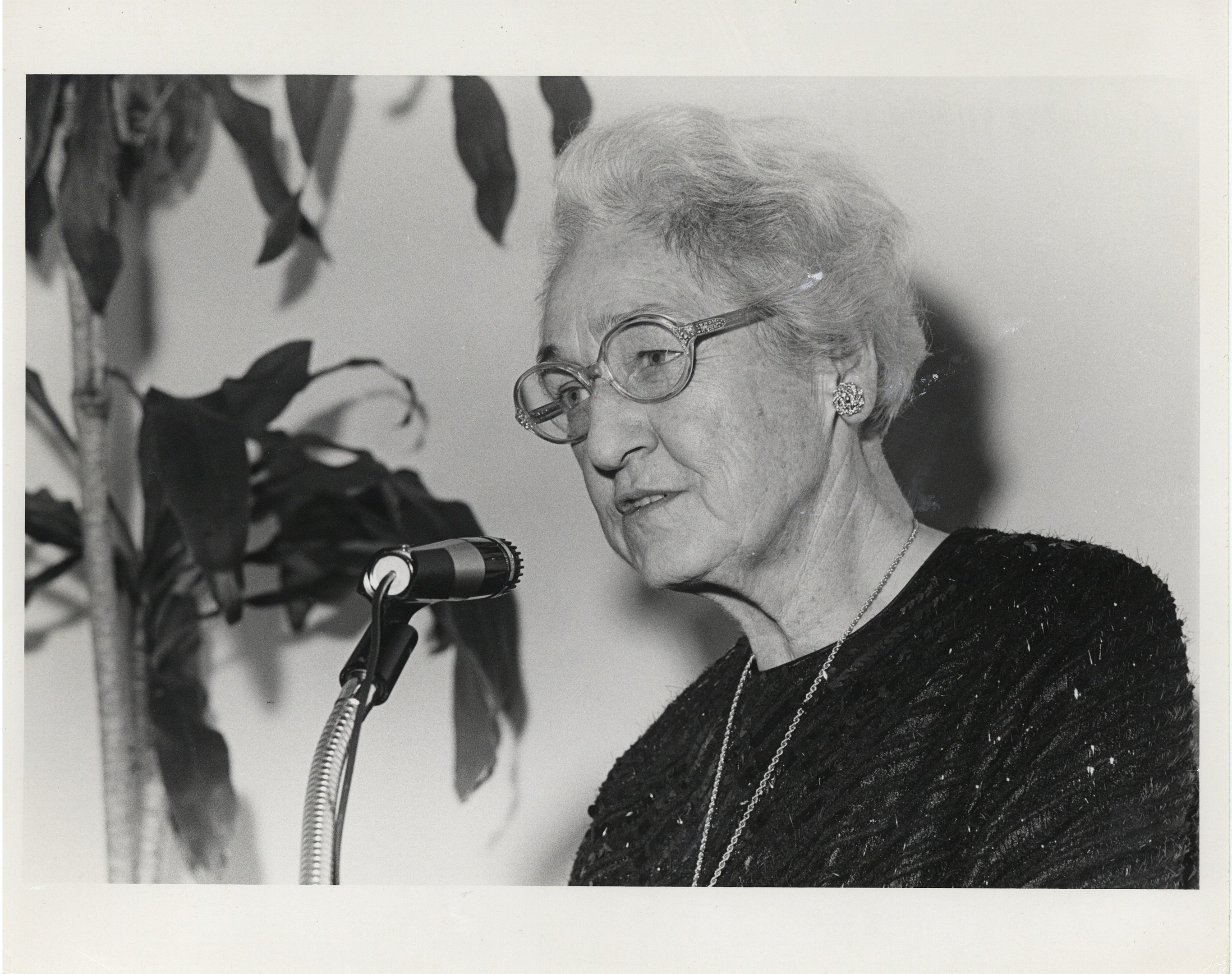

Virginia Apgar, an anesthesiologist best known for developing the Apgar Score, revolutionized neonatal care with her simple, rapid method for assessing newborn health. Her work has contributed significantly to reducing infant mortality worldwide. In recognition of her contributions to medicine and public health, Apgar was honored with a postage stamp in 1994.
Maya Lin
Maya Lin, an architect and sculptor, rose to prominence with her design for the Vietnam Veterans Memorial in Washington, D.C., while still a college student. Her work, characterized by its powerful simplicity and integration with the natural landscape, has earned widespread acclaim. Lin’s contributions to architecture and memorial design were recognized with a postage stamp. While Maya Lin’s face was not featured on a postage stamp, her design of the Vietnam War Veterans Day Memorial Wall has been featured on several commemorative stamps issued by the USPS.
Women Cryptologists of World War II
Technically, this next series of women on stamps honors more than one person. In 2022, the U.S. Postal Service honored the contributions of Women Cryptologists of World War II with a Forever stamp. This recognition highlights the pivotal role played by approximately 11,000 women during the war, who worked tirelessly to decipher enemy communications, thus playing a significant role in the Allied victory.
The dedication ceremony for this stamp took place at the National Cryptologic Museum, underlining the importance of these women’s contributions to the fields of science, technology, engineering, and mathematics (STEM), and acknowledging their work as one of the conflict’s best-kept secrets. Their efforts in cryptography not only aided in the Allied victory but also paved the way for women in military and intelligence roles, marking a significant moment in history for women’s contributions to STEM and security fields
Why the USPS Must Continue to Honor Women on Stamps
Honoring women across various fields with postage stamps by the United States Postal Service (USPS) carries significant cultural and historical importance. Firstly, it serves as a form of national recognition, acknowledging the invaluable contributions women have made to society, culture, science, and politics, among other areas. By featuring women on postage stamps, the USPS not only celebrates their achievements but also educates the public about their stories and legacies, many of which have been historically overlooked or underrepresented. This visibility is crucial for inspiring future generations, showing young girls and boys alike that women have been, and continue to be, pivotal in shaping our world.
Moreover, these stamps foster a sense of inclusion and diversity within the narrative of American history and progress. They highlight the varied roles women have played and continue to play in the advancement of the nation and the world, breaking barriers in fields traditionally dominated by men and advocating for social justice, equality, and change. This recognition underscores the message that contributions to society’s advancement and cultural richness are not limited to any single gender or background.
Finally, in a broader sense, these stamps contribute to the ongoing dialogue about gender equality and the importance of recognizing and valuing diversity. They serve as miniature monuments to progress, encapsulating stories of perseverance, innovation, and leadership. In doing so, the USPS plays an integral role in shaping public consciousness, promoting a more inclusive historical narrative that values and recognizes the contributions of women from all walks of life.








